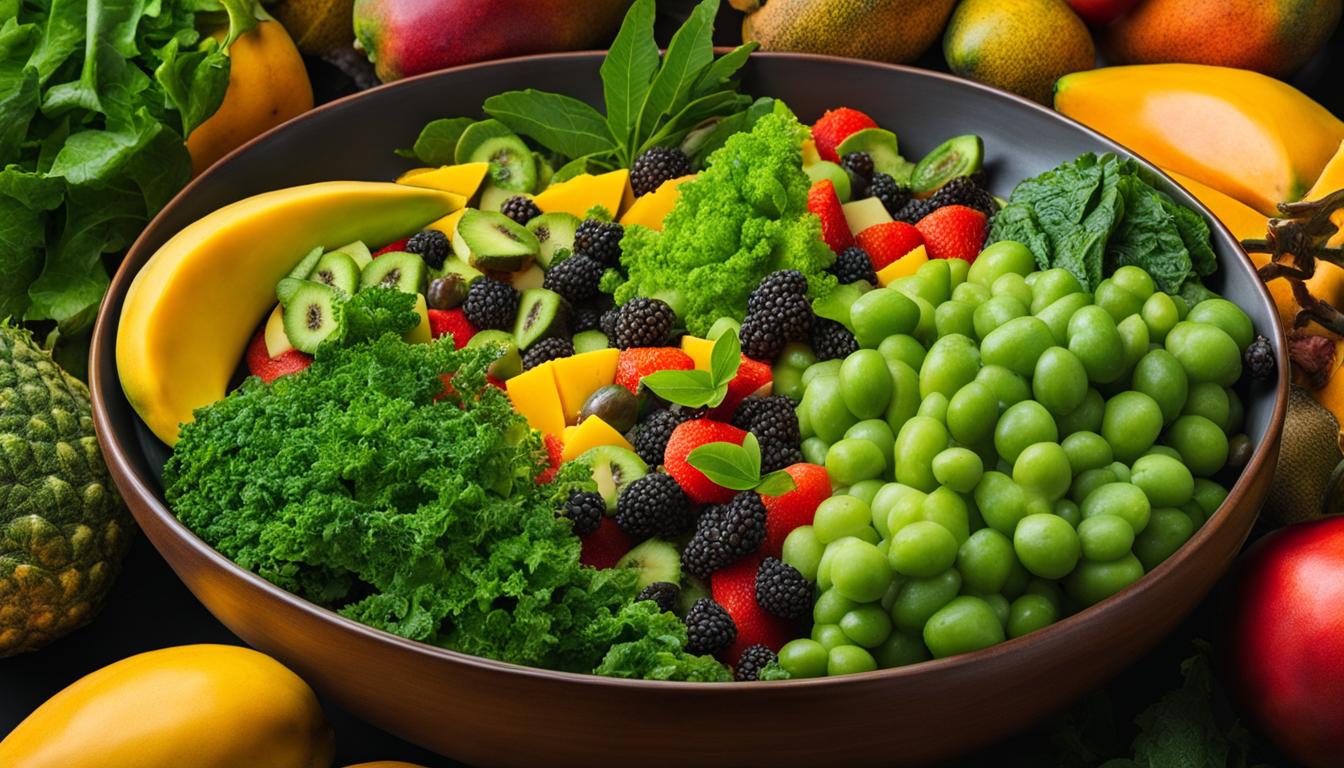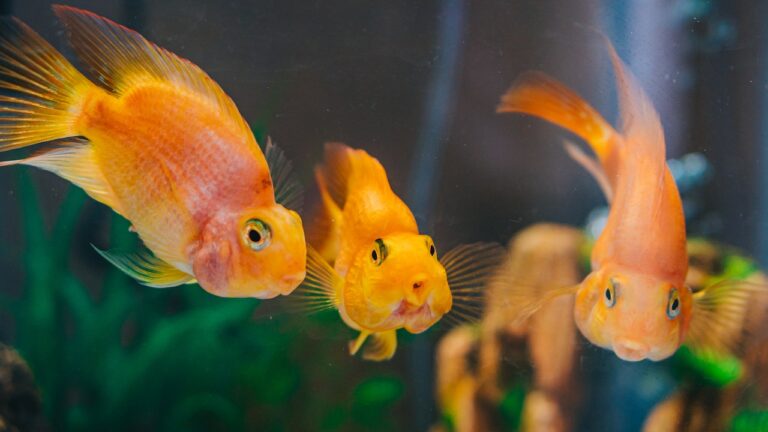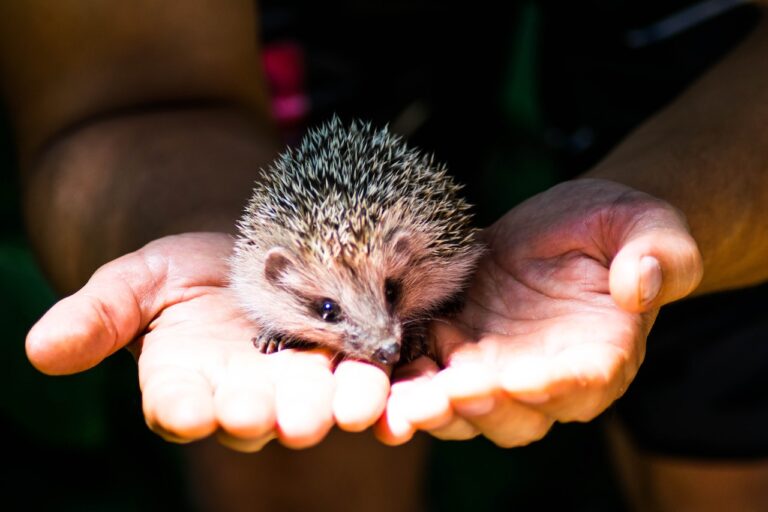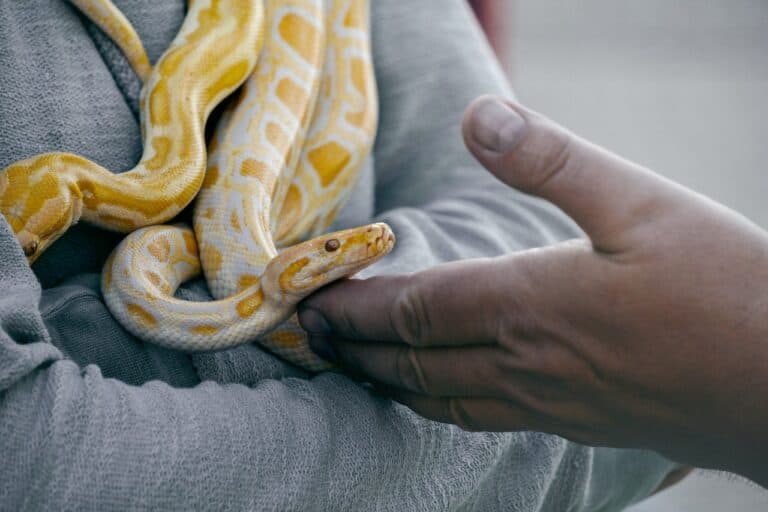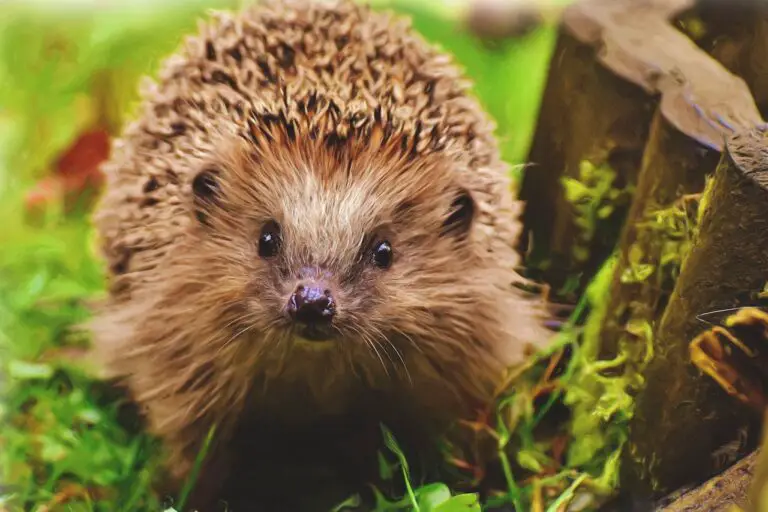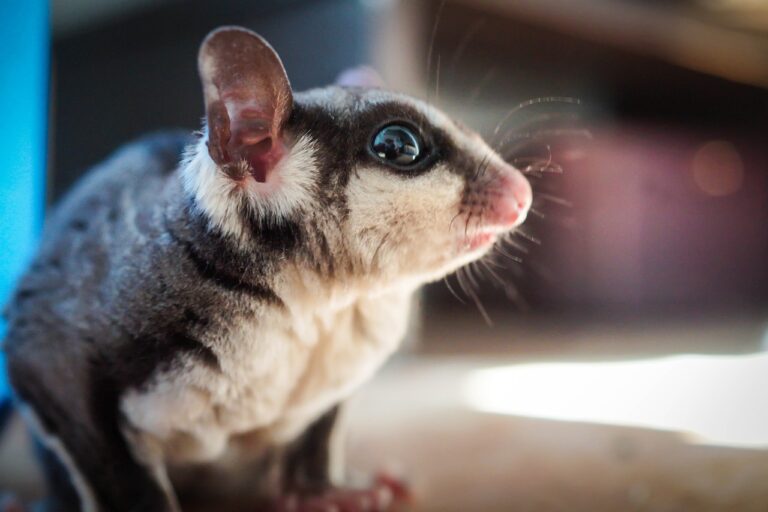Exotic Reptile Diet – Essentials & Nutrition Tips
Proper nutrition is essential for the health and vitality of exotic reptiles. Providing a balanced and nutritious diet is key to ensuring their well-being. According to various sources, reptiles have specific dietary requirements that include essential elements like vitamins, minerals, water, protein, and energy. By understanding and meeting these nutritional needs, you can help maintain the overall health of your exotic reptile.
Key Takeaways:
- Exotic reptiles require a balanced and nutritious diet to thrive.
- Their diet should include vitamins, minerals, water, protein, and energy.
- Water is crucial for hydration and various biological processes.
- Protein is essential for muscle formation and overall growth.
- Reptiles have different energy requirements based on their life stage.
Water for Hydration and Biological Processes
Water is essential for the hydration and overall health of reptiles. Just like other animals, reptiles rely on water for various biological processes in their bodies. It serves as a vital component for supporting healthy cell function and facilitating essential functions such as digestion and metabolism.
Reptiles may have different preferences when it comes to their water source. Some species prefer a drip system, where water is provided in droplets to mimic rainfall, while others enjoy soaking in water for hydration and to maintain their skin’s moisture levels.
Ensuring that your exotic reptile has access to clean water is crucial. Unclean water can lead to dehydration and compromise their well-being. Providing a clean water source will not only support their hydration needs but also help them with crucial biological processes like skin shedding.
Regular access to water is especially important for reptiles as they have a lower metabolic rate compared to mammals. They cannot produce water internally like mammals do and rely heavily on external sources to meet their hydration requirements.
“Water is a vital component for reptiles’ biological processes and overall well-being. Ensuring that their water source is clean and accessible supports healthy cell function and facilitates essential functions like skin shedding.”
Overall, providing access to clean water is essential for reptiles’ hydration and to support their biological processes. It is important to understand your exotic reptile’s water preferences and provide a suitable water source accordingly.
Benefits of Hydration for Reptiles
Reptiles rely on proper hydration for several reasons:
- Water helps regulate body temperature, which is crucial for reptiles as they are ectothermic and rely on external sources for heat regulation.
- Hydration supports vital bodily functions such as digestion, circulation, and waste elimination.
- Proper moisture levels aid in shedding, helping reptiles remove old skin and promote healthy skin growth.
Ensuring that your exotic reptile has access to clean water is vital for maintaining their overall health and well-being. It is a crucial aspect of their diet and care that should not be overlooked.
| Benefits of Hydration for Reptiles | Importance |
|---|---|
| Regulates body temperature | Crucial for ectothermic reptiles |
| Supports digestion, circulation, and waste elimination | Essential for vital bodily functions |
| Aids in shedding | Promotes healthy skin growth |
The Importance of Protein in an Exotic Reptile Diet
Protein plays a vital role in the diet of exotic reptiles. It serves as the building blocks for muscle formation, enzymes, and antibodies. Different reptile species may require specific combinations of amino acids to meet their protein needs. Providing the correct amount of protein, especially through a pelleted diet, can help prevent conditions like pyramiding in tortoises. Including sufficient protein in your reptile’s diet supports their overall growth and development.
When it comes to reptiles, protein is essential for reptile muscle development. It provides the necessary nutrients that contribute to the growth and maintenance of strong muscles. Protein also plays a key role in supporting various physiological functions in reptiles, such as digestion and metabolism.
One of the benefits of incorporating protein into an exotic reptile’s diet is the promotion of healthy skin and scales. Protein is crucial for healthy skin and contributes to the formation of scales. It helps maintain the integrity of the skin barrier, preventing the entry of pathogens and maintaining the reptile’s overall health.
“Protein is an essential component of an exotic reptile’s diet. It is crucial for muscle development, enzyme production, and overall growth and well-being.”
The Best Sources of Protein for Exotic Reptiles
There are various sources of protein that you can incorporate into your exotic reptile’s diet. These include:
- Insects and Invertebrates: Crickets, mealworms, and waxworms are commonly fed to reptiles as they provide a good source of protein and are readily available.
- Small Vertebrates: Some reptiles, such as snakes, may consume small vertebrates like mice or fish, which serve as a rich source of protein.
- Commercial Reptile Food: Many reptile-specific pellet and gel-based diets are formulated to provide a complete and balanced source of protein, vitamins, and minerals.
When feeding your exotic reptile, it is important to ensure a variety of protein sources to mimic their natural diet. This can contribute to optimal reptile health and prevent dietary imbalances.
To better understand the ideal protein requirements for your specific reptile species, consult with a reptile veterinarian or nutrition expert who can provide personalized advice based on your reptile’s needs.
Energy Requirements for Reptiles
Reptiles, including exotic species, require sufficient energy to support various physiological processes. The specific energy requirements of reptiles can vary depending on their life stage and activity levels. Young reptiles that are growing and reproducing have higher energy needs compared to adult reptiles.
It is crucial to ensure that your exotic reptile receives the appropriate energy levels to maintain their health and prevent obesity. Providing the right amount of energy is essential for promoting proper growth, development, and overall vitality.
To meet your reptile’s energy requirements, it is important to provide a balanced diet that includes foods rich in energy sources. However, it is essential to avoid an excess of carbohydrates in the diet, such as those containing starch. This can help prevent weight gain and obesity in your pet reptile.
| Energy Requirements for Reptiles | Energy Sources |
|---|---|
| Young reptiles | High energy requirements for growth and reproduction |
| Adult reptiles | Moderate energy requirements for maintenance |
“Providing the right amount of energy through a balanced diet is crucial in ensuring the overall health and well-being of your exotic reptile.” – Reptile Nutrition Expert
By carefully monitoring and adjusting your reptile’s diet, you can help ensure that their energy needs are met while maintaining a healthy weight. Consulting with a reptile nutrition expert or veterinarian can provide valuable guidance and recommendations based on the specific needs of your exotic reptile.
Next, we will explore the importance of vitamins and minerals in a reptile’s diet for their overall health and well-being.
Vitamins and Minerals for Reptile Health
Reptiles, regardless of species, are at risk of developing metabolic bone disease (MBD) if their diet lacks essential vitamins and minerals. Maintaining the proper balance of calcium and phosphorus is crucial in preventing this condition. Vitamin D3 also plays a crucial role in reptile diets as it aids in the absorption and deposition of calcium throughout the body. Providing a complete and balanced pelleted reptile feed can help ensure that your exotic reptile receives all the necessary vitamins and minerals for optimal health.
Metabolic bone disease is a common and preventable condition in reptiles. It occurs when there is an imbalance in the levels of calcium, phosphorus, and vitamin D3 in their diet. Without adequate calcium and vitamin D3, reptiles may develop weak and brittle bones, leading to skeletal deformities and other health issues.
In the wild, reptiles may obtain the necessary vitamins and minerals from their natural diet and exposure to sunlight. However, it can be challenging to replicate these conditions in captivity. Therefore, it is crucial to provide your reptile with a well-balanced diet that includes the appropriate vitamins and minerals.

When selecting reptile food, choose options that are specifically formulated to meet the nutritional needs of your pet. These commercially available pelleted feeds are designed to provide essential vitamins, minerals, and other nutrients in the correct ratios. Some products even include additional supplements like calcium and vitamin D3 to further support reptile bone health.
A well-rounded diet for your reptile should also include a variety of fresh vegetables and occasional fruits. These can provide additional vitamins and minerals that may not be present in the pelleted feed alone. However, it is important to research and ensure that the specific fruits and vegetables you offer are safe for your reptile and appropriate for their species.
Remember that each reptile species may have slightly different dietary requirements, so it is advisable to consult with a reptile veterinarian or nutrition expert for personalized advice. They can help you determine the optimal amounts of vitamins and minerals needed for your specific exotic reptile, taking into consideration their species, age, size, and individual health needs.
In addition to providing a balanced diet, maintaining proper habitat conditions is also important for reptile bone health. Ensure that your reptile has access to adequate natural and/or artificial UVB light, as this is necessary for the synthesis of vitamin D3 in their skin.
In summary, a diet rich in the right vitamins and minerals is essential for maintaining the bone health of your exotic reptile. Combining a commercially available pelleted feed with fresh vegetables and appropriate supplements can help ensure that your reptile receives all the necessary nutrients for optimal health. Consult with an expert to create a personalized nutrition plan that meets the specific needs of your exotic reptile.
Incorporating Treats and Snacks into Reptile Diets
Offering treats and snacks to your exotic reptile can provide enrichment and variety in their diet. However, it’s important to offer these in moderation. Reptiles such as tortoises and turtles should have no more than 5% fruit and 20% vegetables in their total diet. Pelleted diets should make up the majority of their daily intake to ensure nutritional balance. Providing a mix of greens, veggies, and fruits can be enjoyable for your reptile while still maintaining a healthy and balanced diet.
When it comes to selecting reptile treats, opt for options that are specifically designed for their nutritional needs. Avoid offering human food, as it may contain ingredients that can be harmful to your reptile. Look for commercially available reptile treats that are made from high-quality ingredients and are fortified with necessary nutrients.
Expert Tip: Introducing variety in your reptile’s diet not only adds excitement but also helps prevent potential nutrient deficiencies. Consider rotating through a variety of treats and snacks to ensure your reptile receives a diverse range of nutrients and flavors.
When offering treats, it’s crucial to monitor your reptile’s consumption. Overindulgence in treats can lead to imbalances in their diet and potentially cause health issues. Stick to the recommended guidelines provided by reputable sources or consult with a reptile nutrition expert for personalized advice.
Remember to prioritize the reptile’s main diet, which should consist mainly of nutritionally balanced pelleted food. Treats and snacks should only complement their regular diet and should not exceed specific percentages to ensure a well-rounded, nutritious meal plan.
Providing a variety of healthy treats and snacks can enhance your reptile’s overall well-being and stimulate natural foraging behaviors. It’s an excellent opportunity for you to bond with your pet while ensuring they receive the necessary nutrients for optimal health.
| Treats and Snacks | Reptile Type | Recommended Serving Size | Key Nutritional Benefits |
|---|---|---|---|
| Crickets | Various reptiles | 1-2 crickets, a few times a week | High in protein and essential amino acids |
| Mealworms | Various reptiles | 1-2 mealworms, a few times a week | Good source of protein and fat |
| Dandelion greens | Tortoises | 1-2 leaves, once a week | Rich in vitamins A and C, calcium, and fiber |
| Blueberries | Turtles | 1-2 berries, once a week | Loaded with antioxidants and vitamin C |
Remember, treats and snacks should be given in moderation and should not replace the foundation of your reptile’s diet. Providing a well-balanced and varied diet, along with proper supplementation, will help ensure your exotic reptile’s long-term health and happiness.
Water, Protein, Energy, and Nutrients as Essential Elements
Water, protein, energy, vitamins, and minerals are crucial elements in a reptile’s diet. These essential components are necessary for maintaining their overall health and well-being. Proper hydration, the right amount of protein, sufficient energy levels, and a balance of vitamins and minerals are key considerations in meeting the dietary needs of your exotic reptile. Providing a nutritionally balanced diet that includes these essential elements is vital for their growth, development, and overall vitality.

Water is essential for all living organisms, including reptiles. It is crucial for hydration, detoxification, digestion, and overall physiological functions. Ensure that your exotic reptile always has access to clean and fresh water.
Protein is the building block of life and plays a critical role in reptile nutrition. It is essential for muscle development, enzyme production, and maintaining a healthy immune system. Incorporate high-quality protein sources like insects, worms, or commercially available reptile pellets into your reptile’s diet.
Energy is necessary for various physiological processes in reptiles. The energy requirements may vary depending on their life stage, activity level, and metabolism. Provide your exotic reptile with an appropriate energy level to support their growth and prevent obesity.
Vitamins and minerals are essential for maintaining reptile health. They contribute to proper bone development, enzyme function, and overall metabolic processes. Ensure that your reptile’s diet includes a diverse range of vegetables, fruits, and commercially available supplements to fulfill their vitamin and mineral requirements.
Key Points:
- Water is crucial for hydration and biological processes in reptiles.
- Protein is essential for muscle development and a healthy immune system.
- Providing the right amount of energy supports reptile growth and prevents obesity.
- Vitamins and minerals are necessary for proper metabolic function and bone health.
“A balanced diet rich in water, protein, energy, vitamins, and minerals is essential to meet the dietary needs of your exotic reptile.”
Expert Tips for Feeding Your Exotic Reptile
Feeding your exotic reptile requires careful consideration and attention to their specific dietary needs. To ensure the health and well-being of your pet, here are some expert tips to keep in mind:
- Offer clean and accessible water: Reptiles need access to fresh and clean water for hydration and to support various biological processes. Ensure that your exotic reptile always has access to a clean water source, such as a shallow dish or a drip system.
- Provide the correct amount of protein: Protein is essential for muscle formation, enzymes, and antibodies in reptiles. Different species have varying protein requirements, so it’s important to offer a diet that meets their specific needs. Consult with a reptile nutrition expert or veterinarian to determine the appropriate protein level for your exotic reptile.
- Adjust energy levels based on life stage: Reptiles have different energy requirements depending on their life stage. Younger animals that are growing and reproducing require more energy compared to adult reptiles. Make sure to adjust their diet accordingly to avoid underfeeding or overfeeding.
- Ensure a proper balance of vitamins and minerals: Reptiles need a balanced intake of vitamins and minerals to maintain their overall health. Calcium and phosphorus are particularly important for preventing metabolic bone disease. Including a complete and balanced pelleted diet can help ensure that your exotic reptile receives all the necessary nutrients.
- Incorporate treats and snacks in moderation: Treats and snacks can provide enrichment and variety in your reptile’s diet. However, it’s important to offer them in moderation. Too many treats can lead to imbalances in their overall nutrition. Remember to follow the recommended guidelines for treats and snacks specific to your reptile species.
Expert Tip: Consulting with a reptile nutrition expert or veterinarian can provide valuable insights into the best feeding practices for your exotic pet. They can help design a customized diet plan based on your reptile’s specific needs and ensure their optimal health and well-being.
Example of Reptile Feeding Schedule:
| Meal | Protein Source | Vegetables/Fruits |
|---|---|---|
| Morning | Live insects (crickets, mealworms) | Dark leafy greens, such as kale or collard greens |
| Afternoon | Pelleted diet formulated for reptiles | A small portion of fruit, such as berries or melon |
| Evening | Frozen or thawed rodents (for carnivorous reptiles) | A mix of vegetables, such as bell peppers or carrots |
Remember that every reptile species has unique dietary requirements, so it’s important to research and understand the specific needs of your exotic pet. By providing a balanced and nutritious diet, you can ensure the long-term health and well-being of your reptilian companion.
Conclusion
Providing an exotic reptile with a balanced and nutritious diet is essential for their overall health and well-being. By understanding their specific dietary requirements and incorporating the essential elements of water, protein, energy, and nutrients, you can ensure that your exotic reptile receives the proper nutrition they need to thrive. It is crucial to consult with experts and professionals in reptile nutrition for personalized advice and guidance to meet the unique needs of your pet.
Remember to prioritize the availability of clean and accessible water, as well as the appropriate amount of protein and energy based on your reptile’s life stage. A proper balance of vitamins and minerals, especially calcium and phosphorus, can contribute to preventing conditions like metabolic bone disease (MBD). Offering treats and snacks in moderation can provide variety and enrichment to your reptile’s diet.
By providing a complete and balanced pelleted reptile feed as the foundation of their diet, you can ensure that your exotic reptile receives all the necessary nutrients for optimal health. Investing in their nutrition will contribute to their growth, development, and overall vitality. With proper care and attention to their specific dietary needs, you can help your exotic reptile thrive and enjoy a long and healthy life.
FAQ
What are the essentials of an exotic reptile diet?
The essentials of an exotic reptile diet include water, protein, energy, vitamins, and minerals to support their overall health and well-being.
Why is water important for exotic reptiles?
Water is crucial for exotic reptiles as it is necessary for hydration, supporting healthy cell function, and facilitating processes such as skin shedding.
What role does protein play in an exotic reptile diet?
Protein is essential in an exotic reptile diet as it serves as the building blocks for muscle formation, enzymes, and antibodies.
What are the energy requirements for reptiles?
The energy requirements for reptiles differ based on their life stage, with younger reptiles requiring more energy for growth and reproduction.
Why are vitamins and minerals important in a reptile’s diet?
Vitamins and minerals are crucial for reptile health, particularly in preventing metabolic bone disease and supporting calcium absorption and deposition.
Can I offer treats and snacks to my exotic reptile?
Yes, you can offer treats and snacks to your exotic reptile for enrichment and variety. However, it is important to offer them in moderation and maintain a balanced diet.
What are the essential elements in a reptile’s diet?
The essential elements in a reptile’s diet include water, protein, energy, vitamins, and minerals to meet their specific dietary needs.
What are some expert tips for feeding exotic reptiles?
Expert tips for feeding exotic reptiles include offering clean and accessible water, providing the correct amount of protein, adjusting energy levels based on their life stage, and ensuring a proper balance of vitamins and minerals.
Why is a balanced and nutritious diet important for exotic reptiles?
A balanced and nutritious diet is vital for the overall health and well-being of exotic reptiles, supporting their growth, development, and vitality.
Source Links
- https://mazuri.com/blogs/education-and-nutrition/the-periodic-table-of-reptile-nutrition
- https://www.merckvetmanual.com/management-and-nutrition/nutrition-exotic-and-zoo-animals/nutrition-in-reptiles
- https://reptilesmagazine.com/5-key-elements-of-reptile-nutrition/
Peter Stones is the founder of Exotic Pets Place, the leading online resource for exotic pet care information.
With over 10 years of hands-on exotic pet ownership experience, he is deeply passionate about sharing his expertise to help others properly care for their unusual pets.
When he's not writing extensively researched articles or connecting with fellow exotic pet enthusiasts worldwide, you can find Peter at home tending to his own beloved menagerie of exotic animals.

